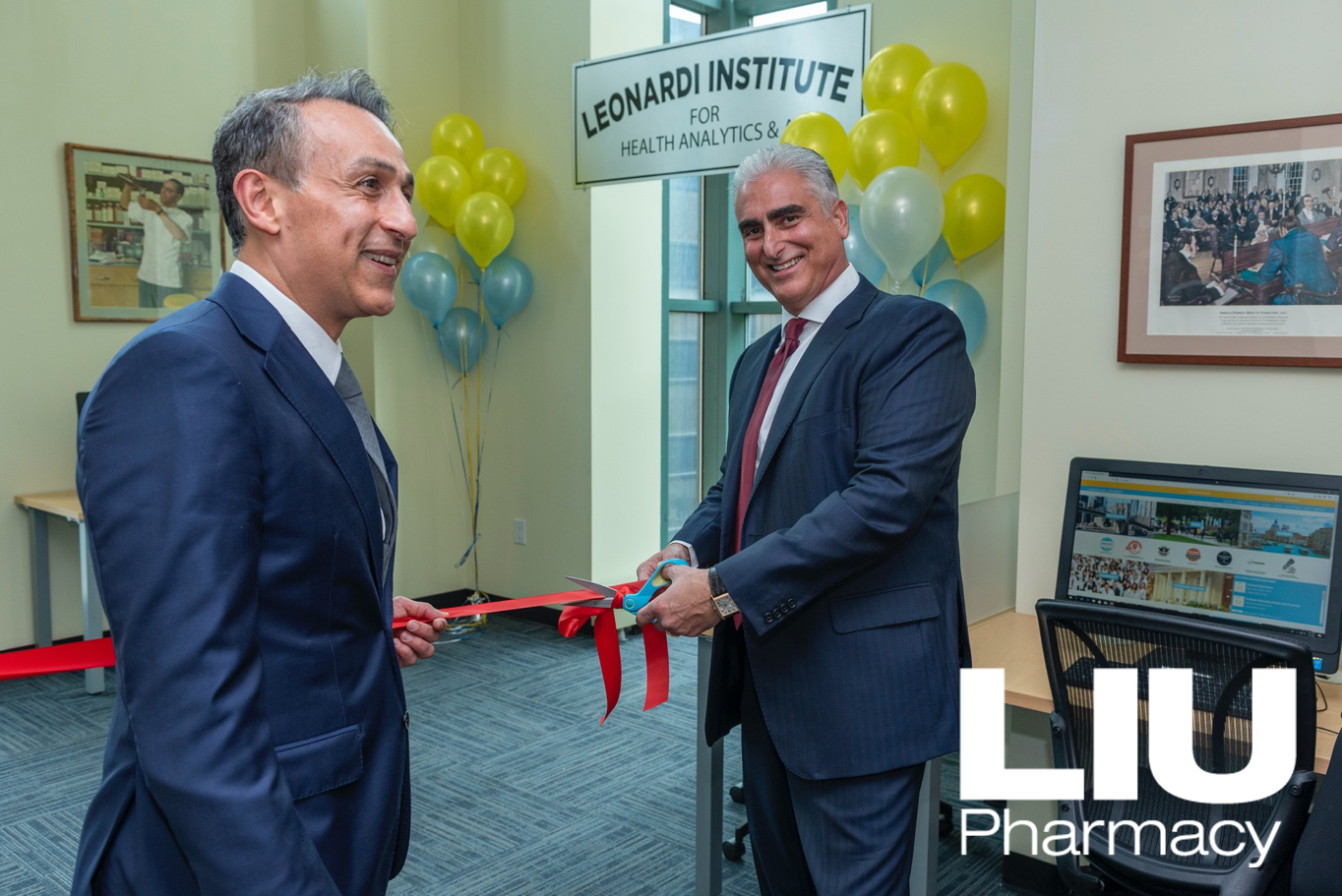More than 100 presentations of scholarly works by students and faculty filled the Steinberg Wellness Center on April 25 as LIU Brooklyn held its annual Discovery Day to celebrate these academic achievements across many disciplines.
On display were posters that covered topics ranging from tapping the energy of black holes to the restorative powers of chocolate milk and the relative impact of concussions in high school sports, just to name a few. All told there were 108 presentations including 19 faculty publications and two interactive installations—one on virtual reality and the other commemorating the 200th anniversary of Mary Shelley’s “Frankenstein.” Also on hand to chat with the presenters was LIU President Dr. Kimberly Cline.
As LIU Brooklyn’s Vice President of Academic Affairs Gale Stevens Haynes put it, “Discovery Day provides the opportunity for meaningful dialogues within and across disciplines, schools and areas to take place, helping to foster a culture of ongoing learning, creativity and research at the Brooklyn campus and beyond.”
“We hope you’ll take some time to visit these installations and browse among the many posters offered today,” Dominick Fortugno, associate dean for the School of Health Professions, told the students in the gym. “Ask questions. Learn about some interesting research avenues you might not have otherwise considered, and take down contact information to build your network. Remember: the students you learn alongside today may be your coworkers and fellow researchers after you graduate.”
Standing next to her poster, titled “Chocolate Milk as a Recovery Drink Post-Workout and Competition,” was Gina Ascolese, who plans to graduate in May with a master’s degree in athletic training. She picked the subject because “it’s a hot topic now in sports and mainstream media.”
A power lifter as well as a personal trainer, Ascolese used athletes on the football team at Wagner College, her clinical site, as her study group to compare chocolate milk and powdered supplements. She found that an 8-ounce serving of chocolate milk “would do the trick. My take on it is that it definitely lives up to the hype. It’s a total recovery.”
Nearby stood Megan Lajoie, now in the second year of her master’s in microbiology program, who was presenting her research on how certain drugs interacted with antibiotic-resistant bacteria that causes lung infections that lead to pneumonia. Her poster was titled “The Role of Catalese-Encoding Genes (katA and katB) in Oxidative Stress and Antiobiotic Susceptibility in Pseudomonas aeruginosa.” The goal, she explained, is to find better treatments “so more people will survive when they get this kind of pneumonia.”
Shamim Al Jubaer, an international student from Bangladesh about to get his master’s degree in cellular and molecular biology, recounted how he’d spent his spring and summer breaks in the apple orchards of Pennsylvania to do research for his thesis. His presentation was called, “Evaluating the Response of Pests and Natural Enemies to Reduce Risks of Management Programs in Apple Orchards.” As a result of his research, he said he’s developed a greater appreciation for the role of beneficial arthropods in agriculture.
Rosalba Munoz, now in the first year of her master’s degree in speech language pathology, presented her research titled “Vowel Perceptual Differences: Comparing Bilingual English-Spanish Speakers and Monolingual Spanish Speakers.” Born in the Dominican Republic, Munoz did her undergraduate work at LIU Brooklyn. Accompanying her was her speech language pathology professor, Dr. Martha Tyrone, who nodded approvingly as Munoz elaborated on her findings that monolingual speakers had an easier time understanding the differences than she had hypothesized.
LIU Global senior Jaimo Mothershead showed the fruits of her case study from her fall semester in Thailand, where she had an internship with Akha Ama, one of the first specialty coffee social enterprises in the country.
“It’s basically put Thai coffee on the map,” said Mothershead, whose project was called, “From Beans to Caffeine: An Exploration of Akha Ama’s Social Enterprise Model.” The founder, Lee Ayu Chuepa, started the company in 2010 to give the members of his rural village community a better future by letting them reap the profits of their harvests rather than continuing to be exploited by middlemen.
“It’s very good coffee,” she enthused. “I did bring some back but unfortunately it’s all gone!”
At her table LIU Global senior Kiki Peterson proudly stood behind a section of wire fence that she explained is similar to the one on the border between the U.S. and Mexico at Friendship Park in San Diego.
“The holes are similar—they’re barely big enough to fit your pinky fingers through,” she explained. Her presentation was inspired by her fall semester spent working with a non-profit humanitarian organization in California called Border Angels (Angeles de la Frontera), which is dedicated to easing the plight of migrants.
“What we basically found is that walls don’t stop migrants. In fact they just funnel them to the dangerous parts of the border, which translates into the desert,” she said, adding that the two leading causes of migrant deaths are extreme hyperthermia and extreme dehydration.
During her freshman year with LIU Global in Costa Rica, she did a two-week independent research project on what she called “the porous border” between Mexico and Guatemala on the Pan-American Highway.
“What is a border if people can cross back and forth?” she asked. “What does it mean?”
Looking ahead, she said she hopes to continue her research. “I want to work with migrants and families,” said Peterson, who’s from Boulder, Colorado. “I want to be in the field and share the knowledge of what’s going on to create dialogue around these issues.”
Looking around the Steinberg Wellness Center it was easy to see that many discoveries were being made that day thanks to all the presentations on display.
![IMG_8026[3]](https://headlines.liu.edu/wp-content/uploads/2018/04/IMG_80263.jpg)


